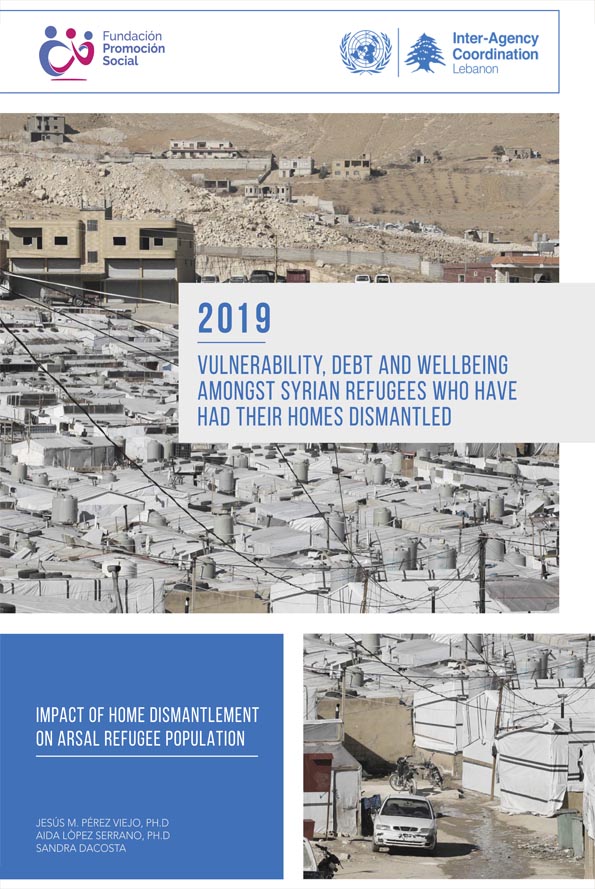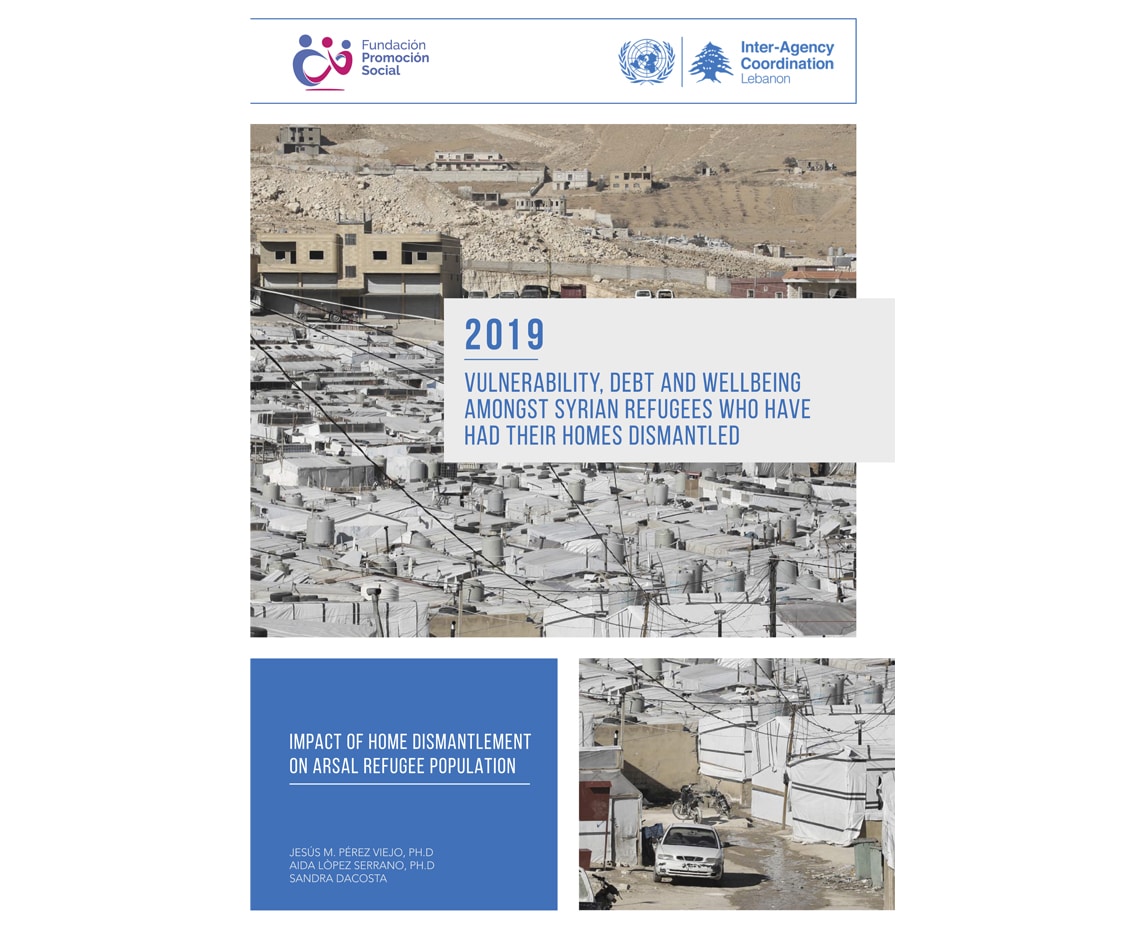
Social Promotion Foundation has completed the study “Assessment of Vulnerability, Debt and Wellbeing amongst Syrian refugees who have had their homes dismantled in Arsal (Lebanon)” (in English and Arabic), funded by the United Nations High Commissioner for Refugees (UNHCR) with 32.299,02 USD.
As of mid-August 2019, 2.396 Syrian refugee households (data source from UNHCR) in and around the municipality of Arsal (Baalbek District, Baalbek-Hermel Governorate, Lebanon) have faced the dismantlement of their homes by the Lebanese central government. As the home environment represents the heart of family life, its destruction will likely have a profound impact on the vulnerabilities and mental health of the affected population, markedly raising protection concerns. An additional consequence of home dismantlement may be the acquisition of additional debt, as families struggle to replace lost/destroyed items while continuing to purchase needed consumables. Therefore, FPS worked to assess the impact of home dismantlement on the vulnerabilities (including debt) and mental health needs of the affected population, thanks to funding from UNHCR.
The overall objectives of the research were:
- To facilitate the design of immediate and short-term operational and protection responses in Arsal (Lebanon) that take into account the humanitarian consequences of dismantlement as well as the upcoming winter.
- To allow longer term operational and protection planning (i.e. 2020 planning, as well as LCRP, the “Lebanon Crisis Response Plan 2017-2020”) to take into account the longer-term consequences of dismantlement, including on patterns of vulnerability.
- To provide evidence for further advocacy towards local and national authorities as well as donors and the international community.
The main implemented actions were:
- Review and synthesis of existing secondary data from UN agencies and others (such as the VASyR, “Vulnerability Assessment for Syrian Refugees in Lebanon”).
- Design and conduct a survey, focus group discussions (FGDs), and key informant interviews (KIIs) centered around three main areas: Vulnerability as a consequence of home dismantlement; Debt as a consequence of home dismantlement; Mental Health and Wellbeing.
- The survey covered Arsal and its immediate surroundings. Based on an estimated affected household number of 5.000, a representative sample of 370 households (CI = 95%) was surveyed. Surveyed households were chosen randomly from lists of families provided by UNHCR. 3 FGDs were conducted (women/men/persons with specific needs), each with approximately 10 households represented. All data adhered to international standards of data protection. 6-10 KIIs were conducted with relevant field experts from protection, child protection and mental health.
- The questions for the survey, FGDs, and KIIs were designed by protection/mental health experts with experience in demolitions/displacement contexts. Enumerators underwent a one day training on filling the survey items, survey mechanics and ethical considerations, also they then arrange appointments with affected households.





